The Oxford Farming Conference
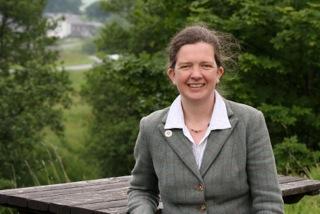
Julia Aglionby
Julia Aglionby is the Director of The National Centre for the Uplands
based at Newton Rigg College in Cumbria; a new initiative supported by
the Prince's Countryside Fund. After studying at Oxford University
(where she was Captain of Ploughing) and at UCL Julia worked in
Indonesia for the Overseas Development Administration as an
EnvironmentalEconomist.
Until moving to Newton Rigg, part of the Askham Bryan College group,
Julia was for 15 years based at H&H at Carlisle Mart as a land agent
and agricultural valuer specialising in the delivery of multi-partite
agreements on common land. Julia is undertaking doctoral research at
Newcastle Law School on the Governance of Common Land in National Parks
and is Chairman of the Foundation for Common Land. She lives on a beef
and sheep farm in the Eden Valley, Cumbria.
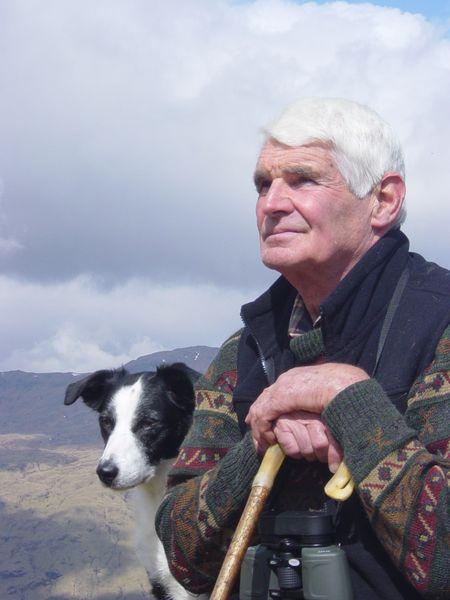
Dr John Cameron CBE FRAgS
John Cameron has represented Scottish agriculture, particularly the livestock sector in many different parts of the world. He has held the posts of Chairman of the NFU Hill Farming Committee, Chairman of the Livestock Committee and the NFU's first long term Chairman in 1978, at the age of 39. It was during his tenure as Chairman that the NFU was able to take an active role in CAP affairs. He was a member of the Agricultural Presidium in Brussels for five years and was appointed the first Chairman of the EEC Sheepmeat Committee. He was also appointed Chairman of the International Federation of Agricultural Producers representing and negotiating on behalf of livestock producers around the world.
In 1980 John Cameron was awarded the George Headley Annual Award to the person who had contributed the most to the UK sheep industry and in 1986, the Sir William Young Award for an outstanding contribution to animal breeding ins Scotland. He has held positions on the both the QMS and the Scottish Beef Cattle Association. He is President of the National Sheep Association and was Honorary President of the Moredun Foundation in 2008.
Outside agriculture, John has served for six years as the Scottish member on the main board of British Rail, he is currently Railway Advisor to the Stagecoach Group plc and was recently appointed as Director of the largest private railway company - South West Trains. John owns Xlner Steam Locomotive 60009 Union of South Africa which still operates on the mainline network. Very much a hands-on man, John Cameron undertook the standard British Rail requirement to become a driver. In 1998 he was awarded and Honorary Doctorate of Technology for his services to rail safety.
His home and base for his farming operations in East Fife, where until recently, he farmed arable, grassland and hill units in partnership with his wife Margaret. He continues to farm in East Fife running 250 suckler cows and a pedigree herd of Herefords. His farming practice is based on simple, low cost extensive systems of production with particular emphasis on welfare and animal health. His other interests are flying and shooting.
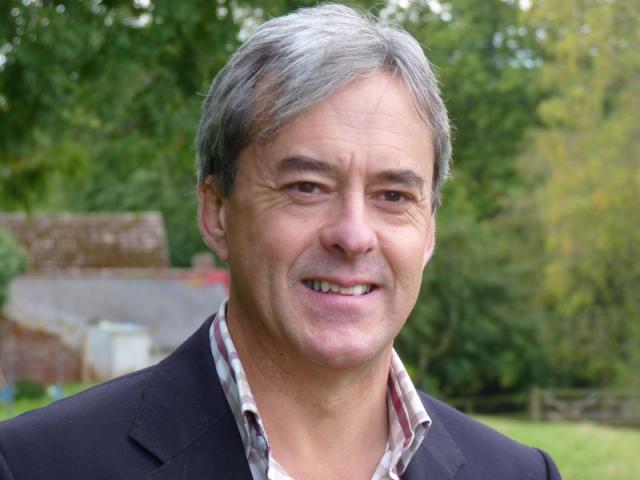
Dr Peter Carruthers
Dr Peter Carruthers has a background in agricultural research and education, rural policy and environmental education. He is currently managing director of Vision 37 Ltd, an independent consultancy providing contract research in agriculture, environment and rural affairs and working with organisations to develop values-centred strategy and leadership. Peter is an Honorary University Fellow at the University of Exeter, and an Honorary Senior Fellow at the University of Worcester. He is a former Chairman of Farm Crisis Network.
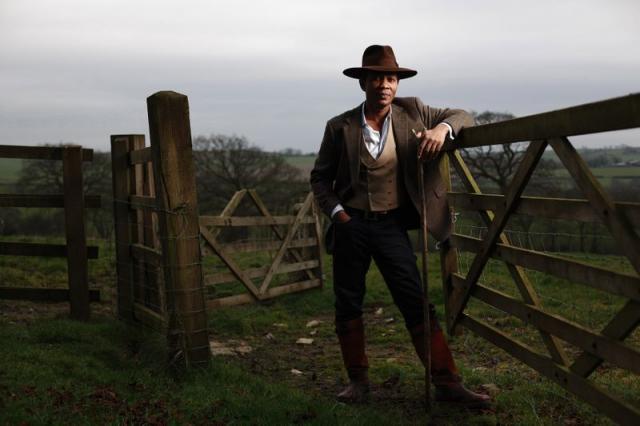
Wilfred Emmanuel-Jones
Emmanuel-Jones is, in his words, ‘a poor boy, done good’. He was born in Jamaica and then, after his parents came to the UK in the 50s, was raised in inner city Birmingham. Unqualified but ambitious and persistent, he talked his way into television, becoming a producer/director for the BBC. He is credited with bringing many of the top celebrity chefs to the small screen including Gordon Ramsay, Antony Worrall-Thompson, Brian Turner and James Martin, before founding a food and drink marketing company in London. Wilfred subsequently fulfilled a lifelong ambition to purchase a small farm in Devon, and has been responsible for one of the most successful food brand launches in recent times in the UK with his own range of sausages and other meat products marketed under The Black Farmer® label. Flavours without Frontiers – the promise offered by
his products also goes some way to sum up his personality. He will not be confined by race, convention or tradition. Wilfred’s strong opinions
on issues such as rural affairs, justice for small producers and giving young people more opportunity have driven much media attention. In 2005 he launched a young city farmers scheme through which young people from inner city communities are given the opportunity to experience what it is really like to live and work in the rural community. Young City Farmers is run annually with the Royal Agricultural College in Cirencester.
In 2006 Wilfred was selected to represent the new Chippenham constituency for the Conservative party. In 2011 Plymouth University awarded Wilfred an honorary doctorate in business.
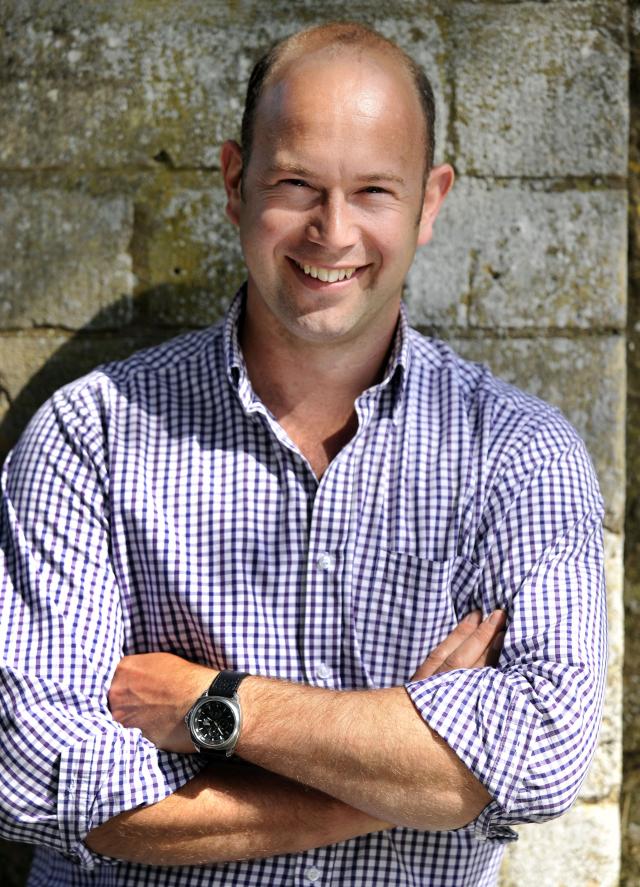
Jake Freestone
Jake was born in Zambia on the 6th October 1971 to Ian and Mary Freestone. They moved back to Bristol (where Jake attended St Mary Redcliffe and Temple Church of England School). Jake completed a BSc (Honours) Degree at Seale-Hayne Agricultural College in 1995 before working as an Assistant Farm Manager for the Duke of Buccleuch at BQ Farms on the Boughton Estate in Northamptonshire.Between 1999 and 2003 Jake worked for Velcourt as a Farm Manager, in Kent, Gloucestershire and Lincolnshire before moving to Overbury Farms in 2003. Farm enterprises managed included; dairy, sheep, arable, potatoes and sugar beet. Jake currently manages the in-hand farming operations for Penelope Bossom trading as Overbury Farms on the Gloucestershire/Worcestershire border. The farm totals 1560ha and comprises of arable crops, land let for vegetable production (potatoes, peas and salad onions) and permanent grassland. The grass carries a flock of 1200 ewes. The farm hosts a very diverse Higher Level Stewardship scheme, started in January 2011.Overbury farms joined LEAF in 2003. Jake has been a keen supporter of Open Farm Sunday since the first event in 2006. In July 2007 the farm was awarded the LEAF Marque for lamb and the farm regularly carries out the LEAF Audit. The farm regularly hosts open days throughout the year and is twinned with Wychall Primary School in Birmingham (hosting 3 visits per year with the same group of children).
In the past Jake has been a chairman of the Worcestershire FWAG (Farming and Wildlife Advisory Group) and EPAC (Environment Protection Advisory Committee) sitting with the West Midlands Environment Agency. Currently Jake sits on the Sainsbury’s Lamb Steering Group and is a steering member on the Molson Coors Growers Group. In November 2009 Jake climbed Mt Kilimanjaro in Tanzania and keeps fit running half marathons (6 in total), and has just completed a 210 mile cycle ride raising money for the Princess’s Countryside Fund. In 2010 Jake was a runner-up in the Farmers Weekly ‘Farm Manager of the Year ‘competition. Last year Jake spoke at the Sainsbury’s ‘Farming for the Future’ Conference and in March this year gave a presentation at the Precision Farming Conference. Jake has been writing a blog (farmerjakef.blogspot.com) since 2006 and has been ‘tweeting’ since October 2010 (@No1FarmerJake). Harvest 2011 saw the launch of his YouTube channel documenting life at Overbury Farms, helping promote the positive aspects of our modern agricultural industry.
Will precision farming change the face of UK agriculture?
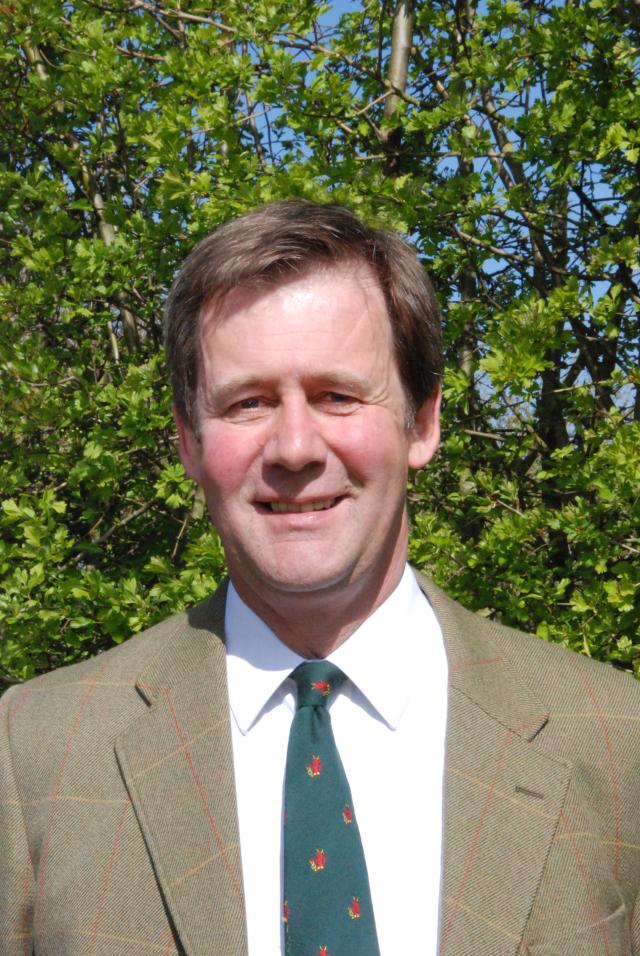
David Gardner
David joined the Royal Agricultural Society of England as its Chief Executive in April 2012. His role is to take the Society back to its roots based upon ‘Practice with Science’. He is currently developing a technology transfer initiative based around the emerging technologies that will shape agriculture over the coming decades.
Prior to joining the RASE David enjoyed a long career with The Co-operative Farms who he joined as a graduate after studying at Seale Hayne. During his time with The Co-operative Farms David held a number of senior positions including Head of Fruit Operations and Manager of Stoughton Estate in Leicestershire. He has considerable experience in the combinable, dairy and fruit sectors.
In 2010 he completed a Nuffield study on ‘New Science and Pioneer Technologies to transform UK agriculture’ which took him to leading research facilities in the USA, New Zealand, Australia and Japan. The study developed a particular interest in genetics and automation. David is married with two grown up sons and lives in Leicestershire.
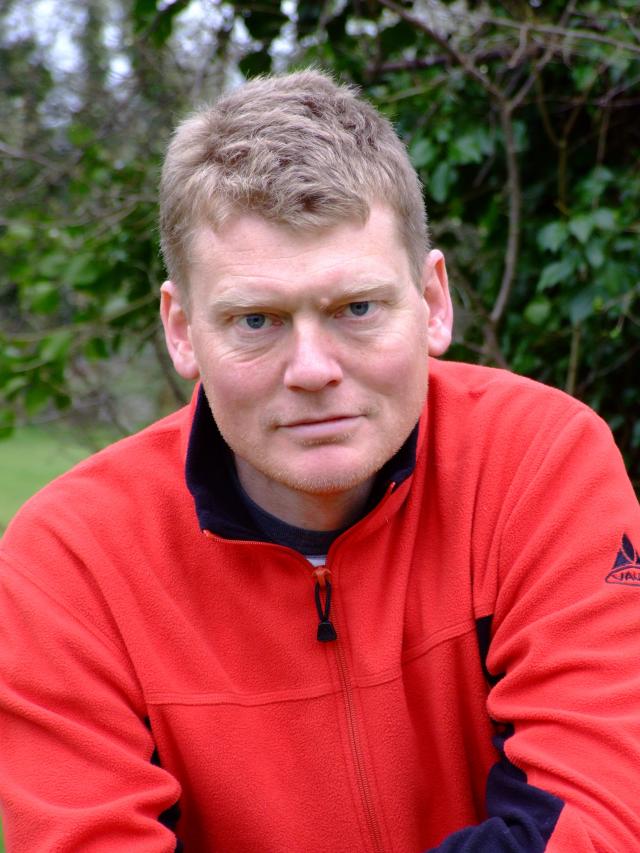
Tom Heap
Tom has recently joined the regular presenting team on Countryfile as the 'face' of the investigations - the more journalistic element of the show. He presents BBC Radio 4's Environment series, Costing the Earth and is a regular reporter on Panorama specialising in Farming and Environment stories. He writes opinion columns and book reviews for the BBC science magazine Focus. Tom spent over a decade with BBC News becoming their first Rural Affairs Correspondent.
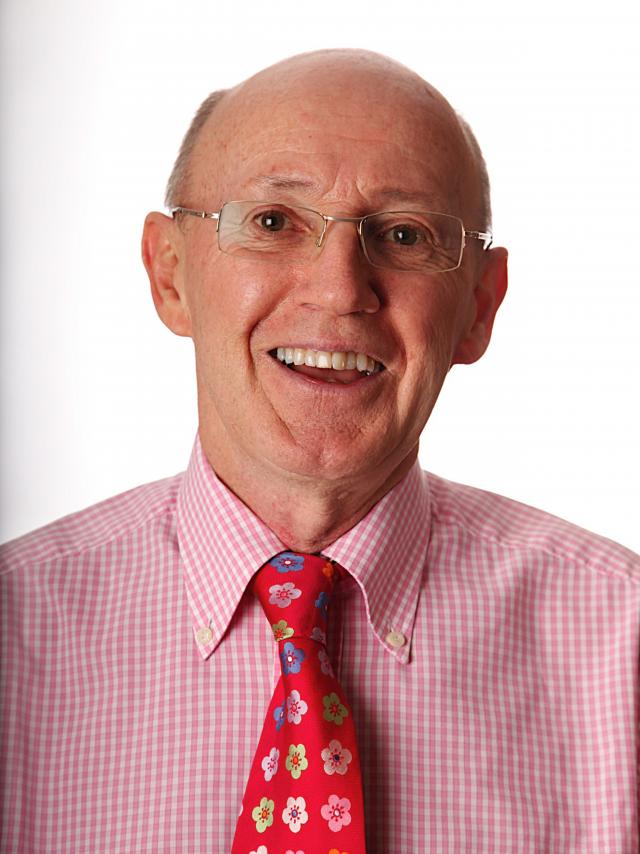
Professor David Hughes
Professor David Hughes is Emeritus Professor of Food Marketing at Imperial College London, and Visiting Professor at the University of Kent Business School and at the Royal Agricultural College. David has extensive experience as an international advisory board member with food companies and organisations in three continents. Apart from Europe, David has lived and worked in North America, Africa, Asia and the Caribbean. He is a Non-Executive Director of Berry Gardens Limited, a UK farmer-owned berry fruit business. David works closely with senior management of food and beverage firms on business strategy development and with governments on food policy formulation across the globe.
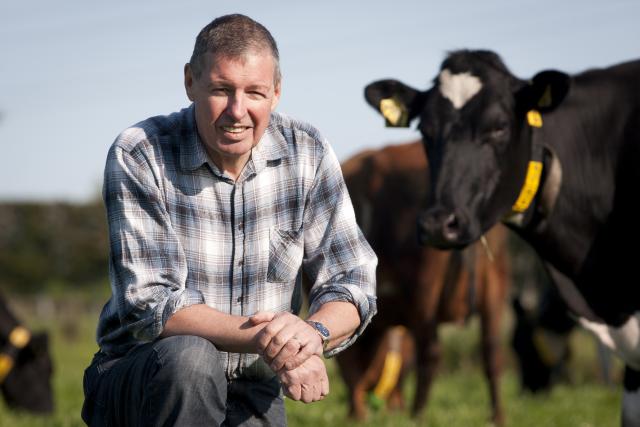
John Luxton
Hon John Luxton QSO is the chairman of DairyNZ the dairy industry good organisation which represents all New Zealand dairy farmers. DairyNZ has a mandate to collect a levy on all bovine milk sold in New Zealand and invests that in research, development, extension, education and advocacy on issues that effect on farm performance, sustainability and competitiveness. He is a farmer elected member and was previously on the Board of Dexcel one of the companies which merged to become DairyNZ.
He is a Co-Chair of the Waikato River Authority established by Government in 2011, which is charged with cleaning up the Waikato River as a part of the agreement between the Government and Maori of the river catchment. He is also a director of Landcare Research Ltd, a Government owned environmental research institute and a member of the Government appointed NZ Constitutional Advisory Panel.
Currently he is a director of two of New Zealand’s larger agricultural exporters; Wallace Corporation operating a tannery and meat byproducts plant and Tatua Co-op Dairy Company Ltd (Chairman 1985-1990) considered to be one of New Zealand’s top biotechnology exporters of value added dairy products.
Over 40 years in the New Zealand agricultural sector, John Luxton has become a major shareholder in agribusiness's now milking around 12,000 cows. This business also has a shareholding in NZ Dairy Holdings Ltd. He has also been involved in growing kiwifruit and avocadoes. He also spent some years in agribusiness consulting in Africa, Asia and the Pacific during the 1970s and 1980s.
He had 15 years as a Member of Parliament in the New Zealand Parliament (1986-2002), of which nine years were as a Minister across a wide variety of portfolios (including Housing, Commerce, Industry, Energy, Fisheries, Maori Affairs, Police, Lands, Customs and Agriculture) before retiring from politics.
He is a trustee of a number of organisations including Massey University Foundation, Royal New Zealand Ballet Company and the Morrinsville Art Gallery Trust. He was a former winner with his late wife Merryl, of the A C Cameron award for the top New Zealand farming business in 1986. He married Wellington QC Mary Scholtens in 1997.
A political perspective from New Zealand

Mark Lynas
Mark Lynas is an environmental author and campaigner. His most recent book is The God Species, tracing how humanity must respect the Earth's biosphere to keep the planet habitable. His previous two books, Six Degrees and High Tide, focused on global warming. He was until recently advisor to the President of the Maldives, as well as being a visiting research associate at Oxford University's School of Geography and the Environment.
Mark Lynas paper

Mairead McGuinness
Mairead McGuinness MEP, an agricultural economist and food policy expert, serves
on the European Parliament Committees on Agriculture and Rural Development,
Environment, Food Safety and Public Health.
Mairead is the lead negotiator for the EPP (European People’s Party), the European
Parliament’s biggest political grouping, on the Direct Payments regime as part of the
reform of the CAP post-2013. She was also the author of a report, endorsed by the
European Parliament in 2009, on the future of the Common Agriculture Policy and
Global Food Security. In 2011, she was voted MEP of the Year for Agriculture by her
colleagues in the Parliament,
She is a strong advocate of policies that deliver a sustainable farming sector and a
vibrant rural Europe. She has also a deep interest in global development policy, the
environment and food safety and security. Mairead was first elected MEP for the constituency of Ireland East in 2004 and was
re-elected in 2009. She topped the poll in both elections. Prior to becoming an MEP, she was a prominent journalist, editor, television
presenter and commentator.
Mairead McGuinness MEP speech

Jim McLaren
Jim McLaren: Age 45 and married with two sons, two daughters and two step- daughters, Jim is a mixed arable and beef farmer, with a herd of Pedigree Simmentals.
His arable unit, growing winter wheat, winter oilseed rape, spring barley and land let out annually for potatoes, extends to 1000 acres over four units in Perthshire. The land comprises of a mix of full tenancy, limited partnership, Short Limited Duration Tenancy (SLDT) and owner-occupier.
Jim is currently Chairman of QMS (Quality Meat Scotland) the Scottish Red Meat Levy Body, he is a Director of NFU Mutual, a Director of SRUC (the newly merged Scottish agricultural colleges) and a founder Director of Angus Cereals, a 45,000 tonne farmer owned cooperative grain drying and storage facility built in 2011 at Montrose Harbour.
Jim was NFUS Vice-President for the year 2006/2007 and President from 2007 to 2011.
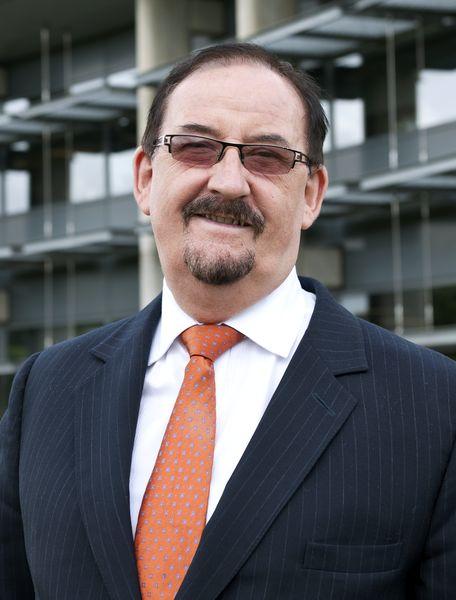
Professor Maurice Moloney
Professor Maurice Moloney has been Director and Chief Executive of Rothamsted Research since April 2010 and was previously Chief Scientific Officer of SemBioSys Genetics Inc, based in Calgary, Canada. He founded the company in 1994 and maintained a successful academic career alongside, at the University of Calgary, where he served as NSERC/Dow AgroSciences Industrial Research Professor of Plant Biotechnology. Professor Moloney has authored over 80 scientific papers in high profile international journals and holds over 300 patents in plant biotechnology worldwide. He is a leading authority on plant cell biology, especially seed biology and its biotechnological applications in crop improvement and in using plants to produce high value proteins such as therapeutics and novel high-value lipids. Professor Moloney also has significant experience of research policymaking having served on the National Sciences and Engineering Research Council of Canada 2002-2008 (a Privy Council appointment). Before moving to Calgary, Professor Moloney led the Cell Biology group at Calgene Inc. in Davis, California, developing the world’s first transgenic oilseeds, which resulted in RoundUp Ready® Canola and other novel crops. He was previously a Royal Society European Postdoctoral Fellow at the University of Lausanne, Switzerland. He holds a Bachelor of Science degree in Chemistry from Imperial College, London, and was awarded his doctorate in plant biochemistry from De Montfort University/Leicester Polytechnic in the United Kingdom
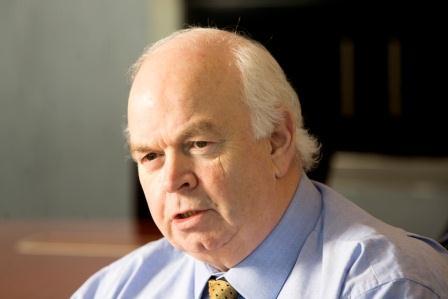
Bill Mustoe
Bill Mustoe was appointed Chairman of First Milk in October 2009. Bill has broad director level experience of both private label and branded businesses in the ambient, frozen, chilled and fresh markets within the UK and internationally.
He has chaired a number of well-known businesses including the European arm of Cott Beverages, the largest private label cola supplier in the world, and Whitworth's, the largest dried fruit company in the UK. Prior to this, Bill held European and UK executive roles with the Campbell's Soup Company.
A Vision for the Future
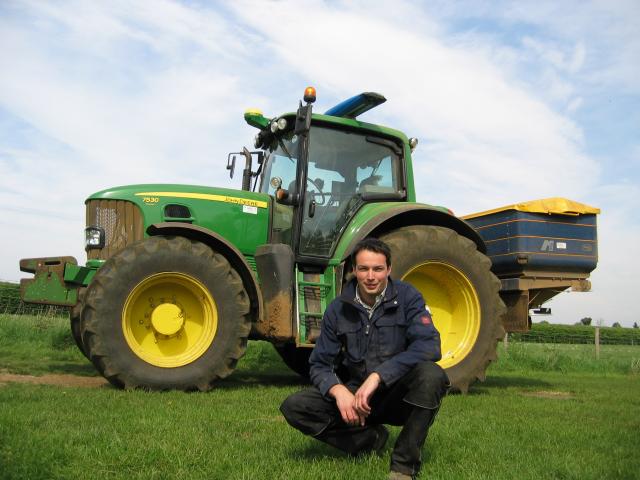
James Price
James is an arable farmer from the edge of the Cotswolds who is pursuing his goal to both improve the organic matter of his soils and be more precise in every input. This has led to a successful and profitable business and also industry recognition. He won the Farmers Weekly ‘Young Farmer of the Year’ in 2009 and was the NABIM ‘Milling Wheat Grower of the Year’ in 2011.
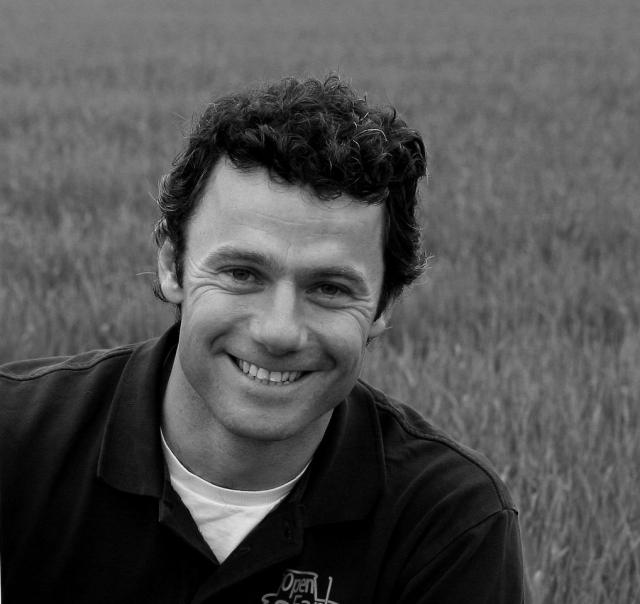
Ian Pigott
Ian Pigott, BSc (Hons), NSch, ARAgS, runs a diversified farming business in Hertfordshire. The LEAF demonstration farm has an on-farm classroom and hosts numerous school visits every year. After graduating from Wye College (University of London) Ian began his career broking commodities. Since returning to the family business, he has committed much of his time to reconnecting people with food and farming on a local and national scale. He founded Open Farm Sunday in 2005 which has welcomed more than 1 million visitors onto UK farms. More recently, Ian has been involved with establishing an industry led initiative to make the career opportunities within farming and food supply more accessible and aspirational to school children. Ian is a Nuffield Scholar, a Trustee of FACE (Farming and Countryside Education) and a columnist for the Farmers Weekly. Ian is married to Gilly and they have two young children.
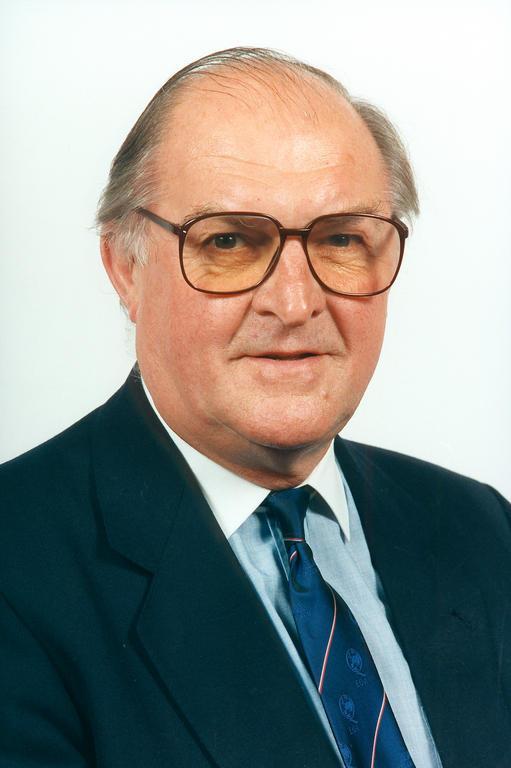
Lord Henry Plumb
In 1940, when Henry Plumb was 15 and attending the King Edward VI School at Nuneaton, his father arrived to see the headmaster. Young Henry was called into the head masters study where his father was standing to be told that he would be leaving school to return home to help on the family farm. The 2nd World War had taken all able bodied men to be soldiers and Plumb senior was unable to run the farm alone. Consolingly the head master said “Don’t worry Plumb. This War can’t last more than six months; there will still be a place here for you when it’s over”.
Henry didn’t see it in quite the same way. He was delighted to be leaving school to work on the farm where he milked the cows - by hand - sorted potatoes, kept 300 acres in order, and generally became his father’s right hand man. It was hard work but he loved it and it turned out to be an ideal training ground for the varied career that followed. He never did go back to school.
He also benefitted from his local Young Farmers Club at Coleshill, Warwickshire, of which he soon became an enthusiastic member, excelling in stock judging, ploughing competitions and, predictably, public speaking. Young Farmers lived up to its reputation as a marriage bureau for him too. He married fellow member, Marjorie, in 1947, a partnership that produced three children and continues to this day.
In 1952 when he was 27 Henry’s world fell apart when his father died suddenly at the age of 58. He was on his own and having to deal with the farm, death duties, and the inevitable re-organisation of the business. The National Farmers Union County secretary proved an invaluable confidante through these troubled times and later persuaded Henry to become active in the County Branch, of which his father had been chairman. Truth be told, he agreed to do it more out of loyalty to his late father than love of agricultural politics.
But the deeper he became involved in the Union the more this changed. Pretty soon he was representing Warwickshire on the NFU Council, chairing meetings and speaking around the country, often about the big debate of the time – the possibility of Britain joining the EEC. His clear sighted vision for the farming industry was being recognised by his fellow NFU members and in 1964 he was elected as Vice President of the NFU at the age of 38 – the youngest ever office holder of the Union.
Three years later he was elected as Deputy President and in 1970 to the top job of President, a position he held for nine years. His election coincided with an increase in public hostility towards farmers because of the price guarantees awarded each February in government Farm Price Reviews that were perceived as too generous. Stanley Evans MP had a few years previously coined the phrase “Feather Bedded Farmers” and it was a gift to the popular press. Governments had responded by reducing those prices and some sectors of agriculture were suffering.
Henry decided it was time to put the record straight and on Feb 2nd 1970 led a march of farmers across London to Whitehall. Farmers loved him for it; government hated it. But it added to his credibility as the farmer’s champion, a reputation he retains. And he was still awarded a Knighthood by the Queen three years later.
He decided it was time to give up the NFU Presidency in 1979 and he tells the probably apocryphal story that when he told his son, John, who was running the farm by this time, John asked “What are you going to do now?” Henry replied that he was happy to leave John to run the farm but would come back to help. “So what would you like me to do?” Henry asked. John replied “Well, you can start by brushing the yard”. It was at that point that Henry decided to stand for the European Parliament – or so he says.
In fact he was elected an MEP for the Cotswolds in 1979 and continued to represent the constituency until 1999. Almost immediately after his election he was appointed Chairman of the European Parliaments Committee on Agriculture. There followed a catalogue of chairmanships and presidencies of various European Parliamentary bodies culminating in the Presidency of the European Parliament itself from 1987 to 1989. It was also in 1987 that he was created Baron of Coleshill in the County of Warwickshire and he remains an active member of the House of Lords.
Paradoxically perhaps for a boy who left school at fifteen he has been awarded more honorary doctorates and fellowships of academic organisations than there is space to mention – many of them by countries where his agricultural and political expertise has been recognised and valued. He has also given unstintingly of his time to lead charitable bodies in Britain and abroad whose objectives have varied from a range of agricultural interests (NSA, IFAP), through rural youth (YFC’s, RAC), rural stress (RABI), the RASE, and many more.
Of particular note on the world stage has been the International Food and Agricultural Trade Policy Council, better known as IPC, which, with help from the Rockefeller Foundation, he founded. His objective, against the background at the time of the Uruguay Round, was to promote international trade in agricultural commodities that was more open, equitable and sustainable than previously. He chaired the organisation from its formation in 1987 until 2001 and remains its chief inspiration. He has, over those years brought together opinion formers and decision makers from around the world with a view to building consensus on matters such as global food security, increasing productivity and economic growth and development.
Through it all he has maintained the image and demeanour of an English Yeoman Farmer – the title of a book written by some of his many friends as a tribute to him – and is still affectionately regarded by his farming peers as “Our Henry”.
And now, in his senior years, he is keen to leave a legacy to the industry in which he started and which he loves so much; a legacy that might start other young people along the kind of path he has trod with such distinction for so long; a legacy that will proudly bear his name for many years to come.
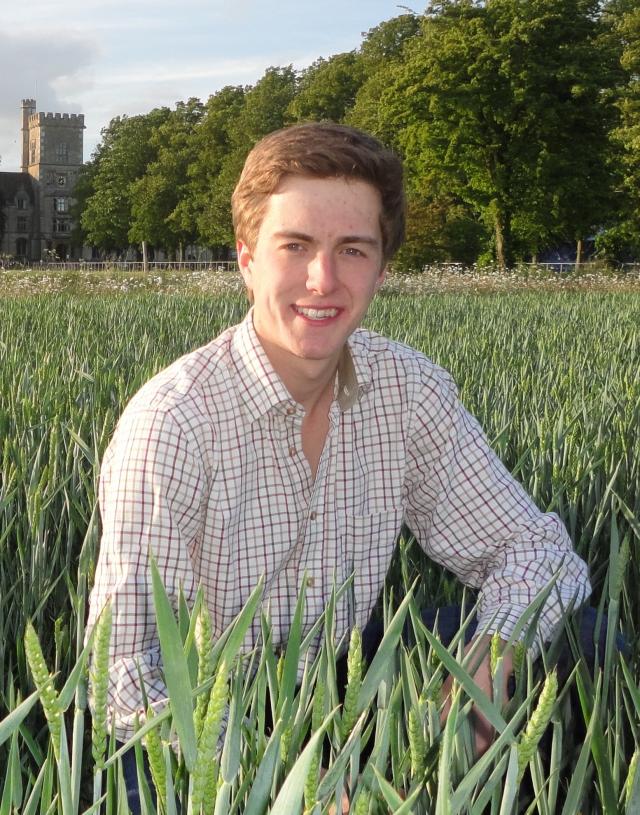
Jake Pickering
Jake is from an arable farm in North Lincolnshire and attended St James’
School in Grimsby where he was head boy during his 6th Form. He is an ‘Outstanding Achiever’ Scholar at the Royal Agricultural College, Cirencester, and is currently in his final year studying Agriculture and Business management BSc (Hons). In the summer of 2012 Jake's enthusiasm for the development of agriculture and politics led him to the British Agricultural Bureau in Brussels where he spent time attending COPA-COGECA sessions and European Parliament agriculture committee meetings. In early October 2012 Jake was chosen to represent his University at the Young Advocates for Agriculture, hosted by the Worshipful Company of Farmers in London. Jake believes Agriculture is entering an exciting time, and having strong and decisive advocates supporting the industry will become more important. Jake is looking forward to seeing what career opportunities present themselves for the summer of 2013.
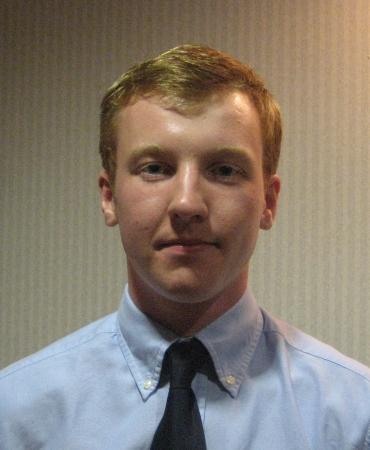
Scott Somerville
Scott is 21 years old and lives on the family farm in Lanarkshire Scotland. He is in his fourth year of studying for a degree in Applied Animal Science at SAC Ayr, and has a keen interest in cattle breeding and fertility.
He is a member of the Scottish Association of Young Farmers and has held many committee positions at club level. Through the young farmers he has taken part in competitions ranging from stock judging to speech making, winning awards, on both accounts, at national level.
He is also an active volunteer for the Royal Highland Education Trust, helping to educate school children about Scottish agriculture through class room talks and farm visits, believing strongly about educating the general public about the importance of agriculture and the interaction between consumer and farmer.
He became a regional advisor to the Moredun Foundation in the spring of 2012, representing the interests of farmers in the south of Scotland area regarding livestock disease issues.
He spent three weeks this year taking part in the Evonik European Ag Trip, touring farming enterprises in central and eastern Europe.
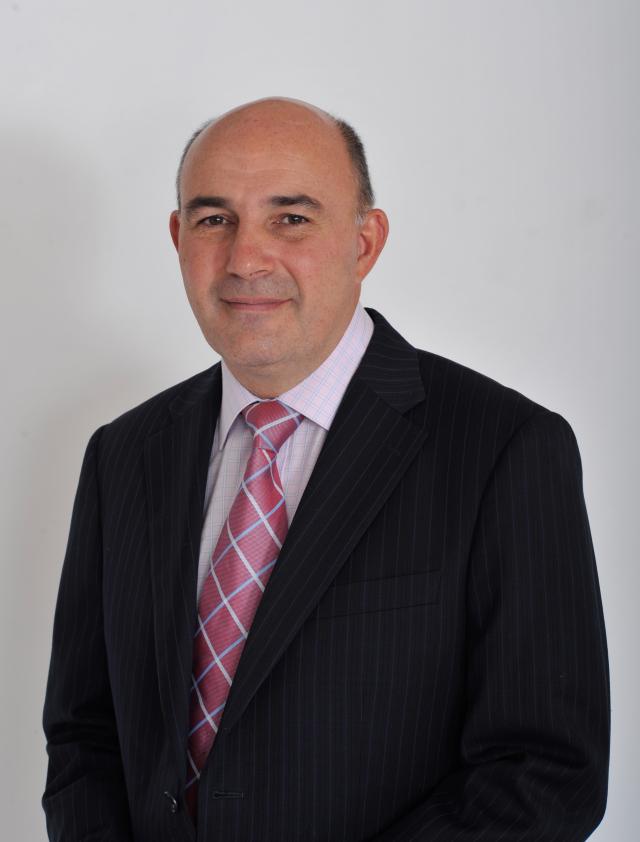
Mark Smith
With an impressive and varied career with Genus ABS, spanning 24 years, Mark Smith has repeatedly succeeded in achieving strategic business objectives gaining an invaluable wealth of industry knowledge and experience in bovine genetics. Fresh from graduating at Newcastle-Upon-Tyne University with a BSc in Agriculture, began his career with seven years in Farm Management Consultancy and then went on to MOET Herd Operations Manger, UK Breeding Programme Manager and most recently Global Bovine Product Development & Production Director, which saw Mark and his family re-locate to the US. In his current role Mark is responsible for all bovine genetic programmes at ABS, including the implementation of new technologies of genomic selection and proprietary evaluations. Responsible for all dairy and beef genetic acquisitions, product development and production of >14 million units of conventional and sorted semen within ABS’s production facilities in USA Canada UK, Australia and Brazil, Mark is also establishing product development and production facilities in the developing markets of China, India and Russia.
With such a global role Mark spends a lot of time travelling and developing products and strategies to fit existing and emerging market segments.
Outside of Genus ABS, Mark is currently on the committee of the ‘Genetics Advisory Forum’ for Dairy Co, and prior to his move to the States, he was also part of the advisory standing committee for ‘Farm Animal and Genetic Resources’.
Developing the right genetic stock for a different future
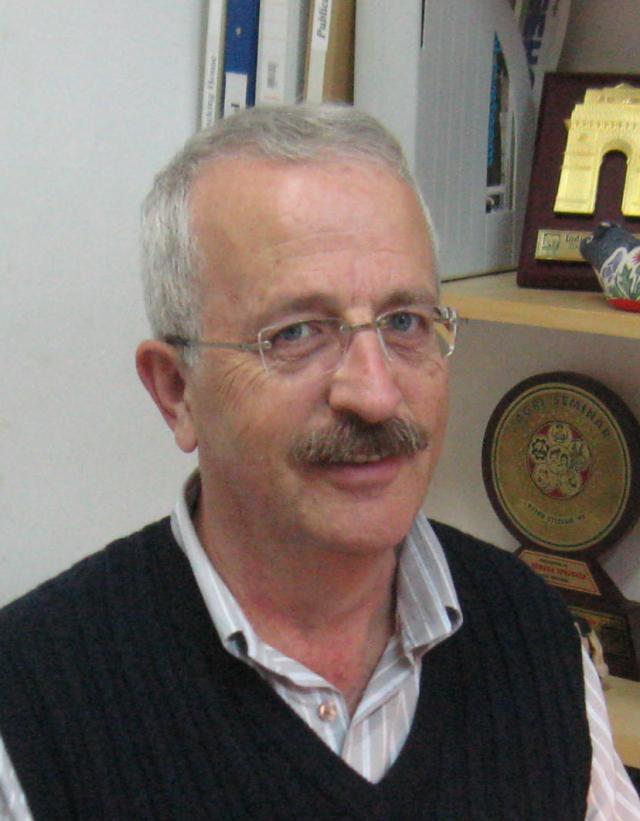
Yehuda Sprecher
Israeli dairy architect Yehuda Sprecher has spent his professional career working in dairy design and innovation, in Israel and around the globe. Today he provides what he sees as the way to achieve a 20,000 liter herd average that is within the scope of the family farm.
Yehuda claims that the production environment should encourage all cows to achieve such yields while at the same time, lowering the carbon footprint per liter of milk.
To push us right outside the boundaries of conventional thinking, Yehuda talks about such things as greenhouse cowsheds and mobile TMR feed troughs. He sees a future where TMR feed will be processed in regional centres and vacuum packed to the extent where 20 tons will fit into an 11 ton trailer to drastically reduce both processing and transportation costs.
Yehuda will polarize opinion, stimulate great debate and motivate a different line of thinking - as we invite him to challenge Australia to think differently.

Matthew Taylor
Matthew Taylor became Chief Executive of the RSA in November 2006. Prior to this appointment, he was Chief Adviser on Political Strategy to the Prime Minister.
Matthew was appointed to the Labour Party in 1994 to establish Labour's rebuttal operation. During the 1997 General Election he was Labour's Director of Policy.
His activities before the Labour Party included being a county councillor, a parliamentary candidate, a university research fellow and the director of a unit monitoring policy in the health service.
He was the Director of the Institute for Public Policy Research between 1999 and 2003, Britain’s leading centre left think tank. Matthew has written for publications including The Times, Financial Times, Guardian, New Statesman and Prospect and is a regular contributor on Radio 4’s Moral Maze.

Martin Thorley
Born in 1961, Martin grew up in a rural environment, working on local farms in Suffolk and participating in the local young farmers club. A serious motorcycle accident curtailed further education at “A” level stage and he went into retail management training building a successful career within The Burton Group. A desire to broaden his horizons beyond the High Street led him into contact with the recruitment industry and he became intrigued by the sector, leading to him joining Merston Peters in 1989. Here he was able to combine a real interest in people, business development in the broadest sense and the rural economy. Over the last 23 years he has gone from employee to joint company owner and taken the business from purely agriculture up into working with major blue chip food processors and a training partnership launched with Waitrose. Today the focus has returned to the agricultural supply chain sector and the client base encompasses a wide range of sector leaders. The challenge to identify, attract, develop and retain top people has never been greater.

Professor Michael Winter OBE
Michael is a rural policy specialist and social scientist with particular interests in applying inter-disciplinary approaches to policy-relevant research and in direct engagement in the policy process. Within the University he is a member of the management boards for two research centres: Sport, Leisure & Tourism and Egenis. He is a member of the National Ecosystem Assessment Expert Panel, a Commissioner for the Commission for Rural Communities, Visiting Programme Director (Food Security) at Wilton Park (Foreign Office), vice-President of Devon Community Council and Chair of the Borth Devon Biosphere Partnership. He is former trustee/director of the BBSRC North Wyke Research Centre, a former member of DEFRA’s Science Advisory Council, Defra’s Panel of Agricultural & Environmental Economists and of SWRDA's Panel of Economists, a past Chair of the South West Rural Affairs Forum. In 2000, he was a member of the Committee of Inquiry into Hunting with Dogs in England and Wales chaired by Lord Burns. He is on the editorial board of the International Journal of Sustainable Agriculture. His current research interests, among others, focus on rural policy analysis and governance; sustainable agro-food systems and food security; climate change and rural land use; the historical and contemporary sociology of west country agriculture; & farmer environmental attitudes and decision-making, particularly in the context of diffuse pollution and water quality.
